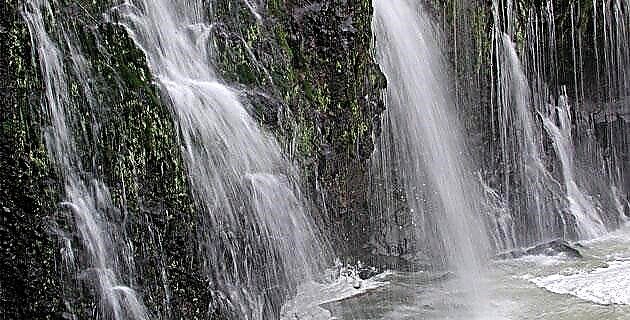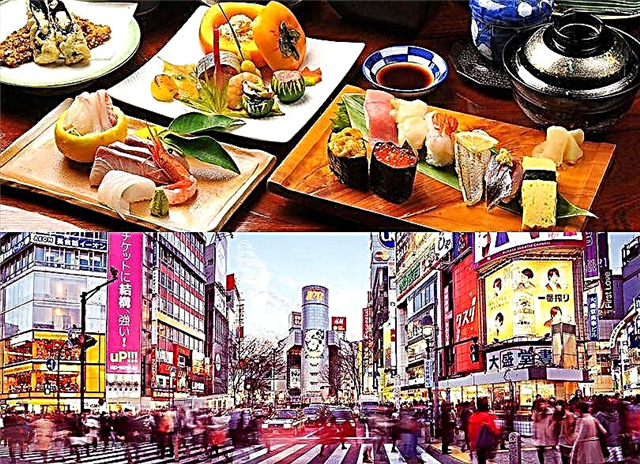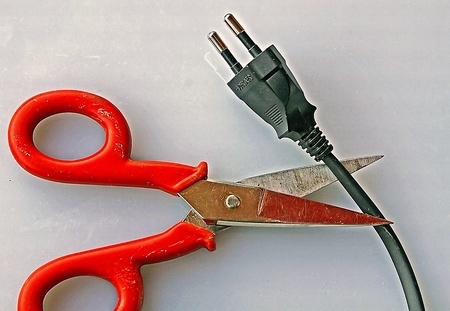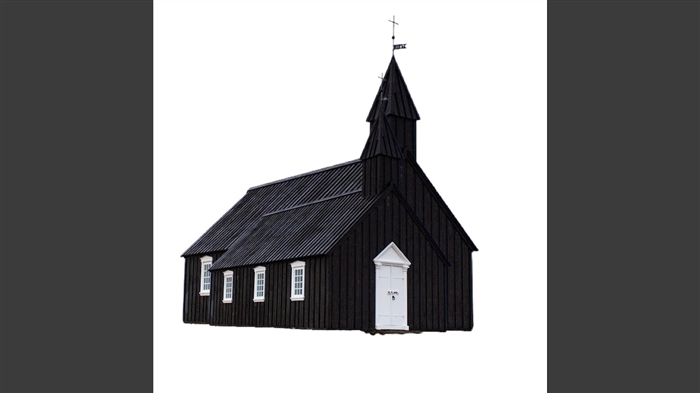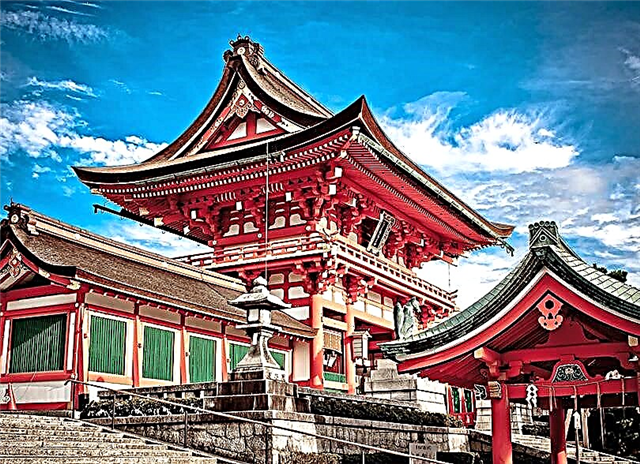The language and customs of Japan make the country a challenge for tourists. A land where you have to know how to handle yourself to avoid problems and to enjoy this developed nation as it should be.
These are the 30 best tips you need to know to make your visit to the land of the "rising sun" as pleasant as possible.
1. Take off your shoes
 Wearing shoes in family homes, companies and temples is a rude and dirty gesture. For the Japanese, what has come with you from the street must not cross the threshold of home.
Wearing shoes in family homes, companies and temples is a rude and dirty gesture. For the Japanese, what has come with you from the street must not cross the threshold of home.
In some cases you will have to wear indoor shoes and in others, you will walk barefoot or in socks.
If you see shoes next to the entrance of an enclosure, it means that if you want to enter it, you will also have to take them off.
2. Don't smoke
 Smoking is not only frowned upon, it is also punishable by law in much of Japan. To do this you will have to go to the permitted areas of the city, some difficult to find.
Smoking is not only frowned upon, it is also punishable by law in much of Japan. To do this you will have to go to the permitted areas of the city, some difficult to find.
The best thing to do is to investigate which cities prohibit smoking. Tokyo and Kyoto are two of them.
3. Don't blow your nose
 Blowing your nose in public is rude. What you should do is wait to be in private or in a bathroom to do it. For no reason do you use tissues in front of the Japanese.
Blowing your nose in public is rude. What you should do is wait to be in private or in a bathroom to do it. For no reason do you use tissues in front of the Japanese.
4. Be careful with photos
 Premises, houses, businesses, and especially temples, jealously reserve the right to photographs of some of their areas.
Premises, houses, businesses, and especially temples, jealously reserve the right to photographs of some of their areas.
Photos in protected or prohibited areas are considered a rude gesture that could lead to you being asked to leave the place. It is best to ask before taking them.
5. Do not leave the bathroom with the same slippers
 You cannot walk around a house with the same slippers that you used to enter and exit the bathroom, because it is considered dirty if you cross the threshold of the toilet and then walk through the residence.
You cannot walk around a house with the same slippers that you used to enter and exit the bathroom, because it is considered dirty if you cross the threshold of the toilet and then walk through the residence.
You will have to wear other sneakers.
6. The account in X
 Asking for the bill in a restaurant in Japan is not like you usually do. Once you have finished your food and are ready to pay, place your index fingers in the shape of an X, a signal that will indicate to the waiter that he should bring it to you.
Asking for the bill in a restaurant in Japan is not like you usually do. Once you have finished your food and are ready to pay, place your index fingers in the shape of an X, a signal that will indicate to the waiter that he should bring it to you.
Read our guide on the 40 places you should visit in Japan before you die
7. Don't tip
 Tipping is a rude gesture for the Japanese. Leaving her suggests that this person has a price for you, something that is frowned upon. You are also suggesting that this worker does not earn enough to pay for their expenses, so you also offend the business.
Tipping is a rude gesture for the Japanese. Leaving her suggests that this person has a price for you, something that is frowned upon. You are also suggesting that this worker does not earn enough to pay for their expenses, so you also offend the business.
8. Don't shake hands
 In Japan you do not greet or introduce yourself with a handshake. The bows or slight bows are his greatest gesture of courtesy, a greeting with rules and meanings that as a tourist you will hardly learn completely.
In Japan you do not greet or introduce yourself with a handshake. The bows or slight bows are his greatest gesture of courtesy, a greeting with rules and meanings that as a tourist you will hardly learn completely.
The most important thing to know for a general greeting is that your back and neck should remain straight, while leaning 15 degrees. It will be 45 degrees when it comes to greeting the elderly, the highest sign of respect.
9. Always left
 The direction for driving vehicles, navigating the streets, using the shoulders or the escalators, is the left. It is also necessary to enter an elevator or a premises, because in addition to being a courtesy gesture, it is believed that it attracts good energy and avoids encounters with spirits.
The direction for driving vehicles, navigating the streets, using the shoulders or the escalators, is the left. It is also necessary to enter an elevator or a premises, because in addition to being a courtesy gesture, it is believed that it attracts good energy and avoids encounters with spirits.
Osaka, the third largest city in the country, is the exception to this rule.
10. Attention with tattoos
 The Japanese associate tattoos with organized crime gangs known as the Yakuza. They are so frowned upon that you will hardly be able to swim in pools, spas or enter the hotel where you stay.
The Japanese associate tattoos with organized crime gangs known as the Yakuza. They are so frowned upon that you will hardly be able to swim in pools, spas or enter the hotel where you stay.
In some cases this type of art will take you straight to a police station. The best thing is that the tapes.
11. Learn the rituals
 The temples are considered sacred places because in them and according to the Japanese, the earth is found with the deities, a space to pray, connect with destiny and above all, with spirituality and tradition.
The temples are considered sacred places because in them and according to the Japanese, the earth is found with the deities, a space to pray, connect with destiny and above all, with spirituality and tradition.
You must know the purification rituals of each sanctuary and for this, watch some locals develop it.
In most cases, it consists of washing your hands with fresh water from a ladle, the same content that you will use to rinse your mouth and spit politely near the source.
12. Don't forget the cash in yen
 Most commercial establishments do not accept dollars or euros, and stores that allow payments with foreign credit cards are rare. The most responsible thing will be that you exchange your money in the local currency as soon as you arrive in Japan; 10,000 to 20,000 yen will be fine.
Most commercial establishments do not accept dollars or euros, and stores that allow payments with foreign credit cards are rare. The most responsible thing will be that you exchange your money in the local currency as soon as you arrive in Japan; 10,000 to 20,000 yen will be fine.
The Japanese are very loyal to their economic system, so avoid bad times.
Read our guide on Japan's Top 25 Tourist Places to Visit
13. ATMs are not an option either
 Your credit cards won't work at most ATMs either. Our advice, change all the money you have brought so you do not have to improvise.
Your credit cards won't work at most ATMs either. Our advice, change all the money you have brought so you do not have to improvise.
14. Don't spend on drinking water
 Japanese cities have numerous public drinking fountains, because drinking water is as pure as those sold in bottles. Our advice: drink from it, fill your bottle and avoid that expense.
Japanese cities have numerous public drinking fountains, because drinking water is as pure as those sold in bottles. Our advice: drink from it, fill your bottle and avoid that expense.
15. Don't forget the map and the dictionary
 A descriptive map of the cities with their respective legends in English and a dictionary of this language will be your best allies in Japan.
A descriptive map of the cities with their respective legends in English and a dictionary of this language will be your best allies in Japan.
Understanding English will be your lifeline because you will hardly get people who speak Spanish.
Although Japanese is deeply influenced by Western cultures and other languages have gained popularity among its inhabitants, there are still many Japanese who prefer to communicate in their natural language.
16. Take a notebook and pencil with you
 In a notebook you will be able to draw what in English you cannot say or make them understand you.
In a notebook you will be able to draw what in English you cannot say or make them understand you.
Write down the address of the hotel where you are staying and translate it into Japanese. This could be very useful, trust me, maybe even save your life.
17. Public transport operates until midnight
 Although the transport is modern and organized, it does not work all day. Until midnight. In case you cannot return home in it and you do not have money to pay for a taxi, our recommendation is that you wait on the street until 5 in the morning, the time that the service is resumed.
Although the transport is modern and organized, it does not work all day. Until midnight. In case you cannot return home in it and you do not have money to pay for a taxi, our recommendation is that you wait on the street until 5 in the morning, the time that the service is resumed.
You will not be alone in the streets because Japan is a country with a rich nightlife. You will have bars, restaurants and cafes where you can hang out. Also, most neighborhoods are safe.
18. Do not point to anyone or anything
 Pointing the finger at someone or somewhere is rude. Do not do it. What you have to do is indicate the person or the site with the full hand. If you can avoid doing it, all the better.
Pointing the finger at someone or somewhere is rude. Do not do it. What you have to do is indicate the person or the site with the full hand. If you can avoid doing it, all the better.
19. Take your tissues with you
 Most public toilets in Japan do not have towels, handkerchiefs, or air-drying devices for hand drying, so you will have to take your scarves with you when leaving them.
Most public toilets in Japan do not have towels, handkerchiefs, or air-drying devices for hand drying, so you will have to take your scarves with you when leaving them.
Waving with wet hands is also considered a rude gesture and drying off with your clothes, an unhygienic action. If you forgot your tissues and although it is still not well seen, it is best to use toilet paper.
20. Organize your transfer from the airport
 The trip to Japan is usually not short or comfortable. The flight times, the climate change and above all the time zone, are disadvantages when arriving in the country.
The trip to Japan is usually not short or comfortable. The flight times, the climate change and above all the time zone, are disadvantages when arriving in the country.
Also imagine having to join the complicated train system that connects all areas of large cities. Between the fatigue, the disorientation and the disadvantages of the language, it turns into quite a feat.
Schedule your transfer from the airport to your accommodation online by contacting a taxi company.
21. Invest in a tour guide
 Although expensive, a tour guide will be the ideal to enjoy Japan much more. Do it through the different companies and Internet applications.
Although expensive, a tour guide will be the ideal to enjoy Japan much more. Do it through the different companies and Internet applications.
22. Enjoy an onsen
 The onsen are very traditional naked baths in hot springs in Japan, used by the Japanese to purify the soul and shed bad energies.
The onsen are very traditional naked baths in hot springs in Japan, used by the Japanese to purify the soul and shed bad energies.
Some are indoors and with steam. Others are outdoors, the most recommended. They are separated by sex and most visitors are used to nudity so they will ignore you.
They are places where you can have casual conversations, learn a little about the history of this ritual and of course, just relax in the steam and the warmth of the waters.
They are symbolic and spiritual baths, so we recommend you shower before going. Shampoo, soap, or creams are not allowed.
23. Don't leave your plate empty
 An empty plate after eating is a rude gesture. For the Japanese culture it symbolizes that the amount of food or drink has not been enough, which hurts the sense of hospitality rooted in its society.
An empty plate after eating is a rude gesture. For the Japanese culture it symbolizes that the amount of food or drink has not been enough, which hurts the sense of hospitality rooted in its society.
The courtesy rule applies in restaurants, traditional houses or when invited by influential or elderly people.
The best thing is that you always leave something to consume. Eating it all is also a rude action in some Western cultures.
Read our guide on how much a trip to Japan from Mexico costs
24. Don't eat standing up
 Mealtime is sacred and has various meanings such as the relevance of the energies and spirituality of the person who prepared the food. Do not eat standing up or start walking with food in hand. It's a rude gesture.
Mealtime is sacred and has various meanings such as the relevance of the energies and spirituality of the person who prepared the food. Do not eat standing up or start walking with food in hand. It's a rude gesture.
Not enjoying food quietly at a table is a way of despising the hospitality of the country.
25. Use the replicas to order food
 Ordering something to eat in a Japanese restaurant is a challenge. The dictionary and even speaking the language will not help you to pronounce the names of the typical dishes, because the intonation and the correct use of the words is complicated.
Ordering something to eat in a Japanese restaurant is a challenge. The dictionary and even speaking the language will not help you to pronounce the names of the typical dishes, because the intonation and the correct use of the words is complicated.
That is why most restaurants have life-size replicas of the dishes on the menu, which are usually displayed on the sideboards of the place for diners to point out.
Our recommendation: don't be too creative in your choices. Start with simple dishes.
26. Taxi doors open by themselves
 Japanese taxis are not like the ones you usually use in your country. The doors of many of them open automatically after they stop. Once you board the unit, it closes itself. Pay attention to your bags and fingers.
Japanese taxis are not like the ones you usually use in your country. The doors of many of them open automatically after they stop. Once you board the unit, it closes itself. Pay attention to your bags and fingers.
27. The HyperDia cannot be missing from your phone
 The train system can be overwhelming and although organized and sectorized, for you as a tourist it could be complex to understand the stations to use, where to stay and which train to take.
The train system can be overwhelming and although organized and sectorized, for you as a tourist it could be complex to understand the stations to use, where to stay and which train to take.
An ideal travel companion is the app, HyperDia. Although it is only available in English, it provides you with information about the routes, operating hours and the platforms you require to board the trains. You can also record the information of your favorite route.
Read our guide on the Top 40 Amazing Crafts, Souvenirs and Souvenirs You Must Bring on Your Trip to Japan
28. Sipping or blowing food is very well regarded
 Some gestures considered rude in the West of the world, in Japan are a way of showing pleasure for what you are eating.
Some gestures considered rude in the West of the world, in Japan are a way of showing pleasure for what you are eating.
Blowing on the noodles or soup, or drinking it slowly, is perceived as an indicator that you are enjoying the food.
29. Reserve in specific restaurants
 Most food outlets, especially in tourist areas, are small and therefore with few tables. It is best to book and find out as much as you can about the restaurant you want to visit.
Most food outlets, especially in tourist areas, are small and therefore with few tables. It is best to book and find out as much as you can about the restaurant you want to visit.
30. Honor your visit to the temples with an offering
 All temples have a box at their entrance to leave coins as an offering. Drop them down and then place your hands in a prayer shape and bow slightly. With this you will collaborate to maintain the place, enrich your spirit and make the gods happy. It is believed that in this way you secure fortune for your life.
All temples have a box at their entrance to leave coins as an offering. Drop them down and then place your hands in a prayer shape and bow slightly. With this you will collaborate to maintain the place, enrich your spirit and make the gods happy. It is believed that in this way you secure fortune for your life.
Conclusion
Japan is an ancient land full of customs, traditions and a culture that is sustained despite foreign influence. That is why it is important that you soak up their beliefs, prepare your visits and supplies in advance and above all, do not underestimate everything new you will learn.
Do not stay with what you have learned. Share it with your friends on social media so they also know the 30 best tips for traveling and being in Japan.



